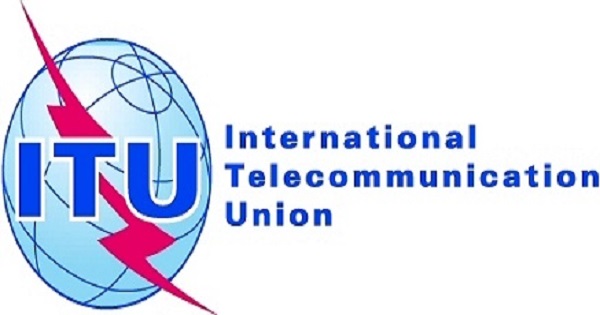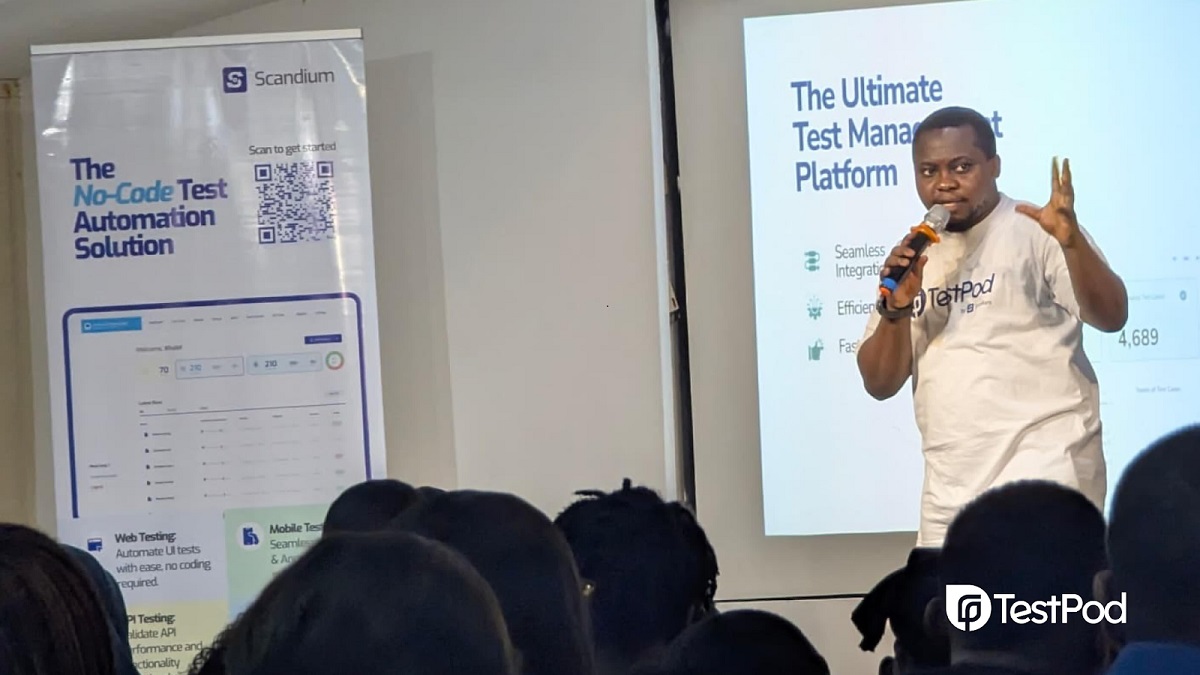Telecom
ITU to Maximise Global Impact of 5G Rollout

The International Telecommunication Union (ITU), the United Nations specialised agency for information and communication technologies (ICTs), that is driving global innovation in ICTs, has formed a new focus group to optimise the ‘testbeds’ for rolling out effective, sustainable fifth-generation (5G) infrastructure and services.

With 5G poised to ramp up digital transformation worldwide, global research communities are joining forces to maximise their collective return on testbed investments.
The new ITU Focus Group on ‘Testbeds federations for IMT-2020 and beyond, will responds to urgent needs to build a technical and business ecosystem for the sustainable development, evolution, and federation of testbeds, which is the physical and virtual laboratories and testing spaces for new and emerging technologies.
Announcing the initiative in a recent statement, Houlin Zhao, ITU secretary-general, said: “The accelerating digital transformation of our economies relies on the combination of increasingly complex technologies in fields from 5G and the Internet of Things to big data, cloud computing and machine learning. This focus group aims to build new partnerships to help test labs making mutually reinforcing contributions to innovation, to everyone’s benefit.”
In Nigeria, the Nigerian Communications Commission (NCC), had on December 13, 2021, auctioned two lots in the 3.5GHz spectrum band to MTN Networks Limited and Mafab Communications Limited, to enable them rollout 5G technology services in Nigeria in 2022.
One week after MTN was announced as one of the winners of the 5G licence, through the 3.5GHz spectrum auction, MTN finalised arrangements to launch its RCS Business Messaging (RBM) Services in partnership with Google and Dotgo.
Available on 3G and 4G networks, RCS is the default messaging standard for 5G networks. As of today, RCS is available globally with over 700 million monthly active users.
Google is a global technology solution provider, while Dotgo is a gupshup company and a leading cloud communications provider of RBM solutions.
RBM uses the rich and interactive features of Rich Communication Services (RCS)—the next generation SMS that allows sharing of audio, video, images, location, and a lot more—to enable branded business messaging.
Addressing the urgent need for broader 5G cooperation, Zhao said accelerating industry automation spurred by the COVID-19 pandemic, amplified the urgency to create the international cooperation framework for 5G testbeds.
Open to all interested parties, the focus group aims to build broader knowledge of the specialisations of different testbeds and identify opportunities for mutually beneficial interactions. It will also provide a platform to harmonise specifications for testbed interoperability, fostering and enabling high degrees of quality assurance and security.
Focus Group Chairman, Giulio Maggiore, from ITU member Telecom Italia, said: “Testing certain technologies and associated use cases requires an extensive set of components and resources that few test labs are able to host in isolation, and this is becoming especially apparent as we enter the 5G era.”
Addressing the growing complexity of emerging technologies like like 5G, Maggiore said testbeds that are run by industry and academia, would play an essential part in bringing game-changing digital technology breakthroughs to market.
The focus group is expected to report to ITU’s expert group on standardization for protocols and test specifications, ITU-T Study Group 11.
Its work is intended to build on the new ITU standard Q.4068 specifying open application programming interfaces for interoperable testbed federations, which defines a generic reference model for such federations and describes the foundational elements of this model.
According to Zhao, the first meeting of the focus group would be scheduled to hold online between 4-7 April 2022.
Telecom
MTN Plans Second Public Offer in Nigeria

Ralph Mupita, president,MTN Group, has announced plans to reduce its shareholding in MTN Nigeria through a public offer after it returns to profitability.

The group aims to cut its stake from 76 percent to 65 percent in line with its longstanding commitment to deepen local ownership, according to ITWeb, South African tech publication.
Mupita, who disclosed the plan during an editors’ roundtable meeting this week, said “The only localisation we have as MTN Group is we have potentially a sell-down in Nigeria at some point in time, approximately 11 percent. This is something we have said long ago, that over time, we would want more Nigerians owning the company, and we are prepared to sell down to 65 percent. We are at around 76 percent,” he said.
The anticipated offer would mark MTN’s second major retail public offering in Nigeria, following its 2021 sale of 575 million MTN Nigeria shares to local investors.
That offer was oversubscribed, resulting in the allocation of 661.25 million shares, including a 15 percent greenshoe option. This reduced MTN’s stake in its Nigerian unit to 75.6 percent from 78.8 percent.
More than 126,000 investors participated in that round, including retail and institutional investors such as Nigerian pension funds, representing approximately 6.5 million contributors.
At the time in 2022, MTN Group announced plans to further reduce its stake to approximately 65 percent from 75.6 percent.
Mupita confirmed that the Group would only proceed with a new offer once MTN Nigeria resolves its negative equity position and resumes dividend payments.
Currently, MTN Nigeria’s shares are trading at N235 per share.
Despite reporting a revenue of N3.36 trillion in 2024, a 36.03 percent bump from N2.47 trillion in 2023, it posted a loss after tax of N400.44 billion, a 192.25 percent rise from N137.02 billion in 2023.,
This negative performance was driven by macroeconomic headwinds, including record inflation and a steep devaluation of the naira, which raised operating costs and wiped out investor value.
MTN Nigeria has fallen behind MTN South Africa as MTN Group’s largest revenue contributor.
However, the Group is projecting a rebound in 2025, citing key drivers such as recent tariff adjustments, operational restructuring, and improving macroeconomic indicators in Nigeria.
Speaking at the roundtable, Mupita highlighted that the Group is anticipating a V-shaped recovery in Nigeria’s service revenue. He pointed to the recent structural reforms, such as the removal of fuel subsidies, the naira stabilisation, and improved dollar availability.
“The continued normalisation of these factors, particularly naira stability, should have positive impacts on consumer spending power and our business operations,” Mupita noted in the Group’s financial statement for 2024 recently.
Telecom
MTN Staff Commission New Set of Classrooms at Iwerekun Community High School

In a remarkable demonstration of corporate volunteerism, MTN staff, through the Y’ello Care initiative, have renovated a school block at Iwerekun Community Senior High School, Lakowe. This effort has restored hope and significantly improved learning conditions for both students and teachers.

The project, led by dedicated MTN employees, is part of the annual Y’ello Care campaign, which focuses on empowering communities through education, digital inclusion, and economic support.
Prior to the renovation, students at Iwerekun Community Senior High School faced challenges, including deteriorating classrooms that hindered effective learning. Recognising the need for intervention, MTN staff stepped in to transform the learning space, creating a safe, conducive, and inspiring environment for both students and teachers.
At the commissioning ceremony, Honourable Jamiu Tolani Alli-Balogun, Commissioner of the Lagos State Ministry of Basic and Secondary Education, acknowledged the significance of MTN’s contribution to education: “The education sector worldwide thrives on collaboration and commitment between public and private partners. MTN’s generous contribution is truly recognised, and I express my deepest gratitude for its unwavering commitment to supporting education in Lagos State. This new facility will provide a conducive environment for teaching and learning, enabling our students to reach their full potential.”
Representing the Ojomu of Lakowe, Prince Mukaila Adeola expressed the community’s gratitude: “This is a rare opportunity, and it is not every day that Lakowe benefits from such support. We truly appreciate MTN for this contribution, and we look forward to even more support in the future.”
The renovated school block is equipped with improved water supply and an inverter included in a serene environment that enhances the learning experience. This renovation will ensure that students and teachers have a more comfortable and sustainable academic setting.
Speaking on the significance of the project, Tobe Okigbo, Chief Corporate Services and Sustainability Officer (CCSSO) at MTN Nigeria, emphasised the personal investment of MTN staff: “I want to emphasise that this commissioning was made possible by the dedicated staff of MTN. Although MTN has a Foundation funded by 1% of the company’s annual profits, the credit for this commissioning goes to the MTN Nigeria staff members who, through their personal contributions, made this happen.”
Beyond the fresh coat of paint and structural improvements, initiatives like this create a lasting impact and a sense of hope in the lives of the students. The addition of a reliable power source and water facility means that students no longer have to struggle with poor infrastructure, allowing them to focus on their education.
For many students, access to quality education remains a challenge—not just because of financial barriers but also due to poor infrastructure, lack of resources, and limited teacher support. Programmes like Y’ello Care, alongside other education-focused volunteer initiatives, are helping to fill these gaps by creating safe, well-equipped learning environments and equipping students with knowledge beyond the classroom.
With the successful completion of the Lakowe school project, MTN reaffirms its commitment to education and youth development. The company encourages more organisations to embrace volunteerism and community service, as collective action remains a powerful force for societal progress.
Telecom
Scandium Introduces TestPod to Revolutionize Software Testing Across Africa and Beyond

Today’s software ecosystem is moving fast, building quality digital products has never been more crucial and more complex. As teams accelerate release cycles using a blend of manual and automated testing, one persistent issue remains: test management is fragmented.

That’s the problem TestPod, a newly launched test management platform from the team behind Scandium, is built to solve.
TestPod officially launched on Friday, April 11, 2025, offering software teams (whether in Africa or anywhere else) a much-needed solution to centralize and track their testing processes across platforms and test types. Whether it’s manual, automated, exploratory, accessibility, performance, or regression testing, TestPod brings visibility, structure, and speed to fragmented QA workflows.
“We spoke to over 200 teams at different African startups and enterprises, and despite having some automation in place, at least 90% are still heavily reliant on manual testing, just like their global counterparts,” said AbdulAzeez Ogunjobi, CEO and Co-Founder of Scandium Systems.
He explains that while Scandium’s AI-powered no-code automation suite is already being used across web, mobile, and API products globally, TestPod addresses a more foundational gap: organizing and managing all forms of testing—not just automation.
“Furthering our mission to help teams build bug-free digital products, we’re launching TestPod to help them organize their software testing operations, regardless of what kind of testing they need to do,” he added.
The timing is critical. According to the World Quality Report 2024–25, 68% of organizations are exploring Generative AI in their QA workflows, but most still lack clarity on what tests are running, what’s failing, and how test coverage aligns with ongoing releases.
Meanwhile, Africa’s digital economy is booming. A recent McKinsey report estimates it could contribute over $712 billion to continental GDP by 2025. The continent now holds more than 1.1 billion registered mobile money accounts, and in 2023 alone, over $1 trillion in transactions were processed across Instant Payment Systems, according to AfricaNenda. Regulations are tightening. Quality, reliability, and user trust are becoming more central, as the continent churns out more tech solutions in expanding sectors.
Testing isn’t just about automation. It’s about knowing what’s working and what’s broken.” noted Sodeeq Elusoji, CTO and Co-Founder of Scandium. “The real bottleneck in testing isn’t always a lack of automation—it’s lack of visibility. You can’t improve what you can’t track, and that’s what TestPod delivers.”
Unlike traditional tools that prioritize rigid workflows, TestPod is lightweight, modern, and flexible, designed for agile teams who need to move fast. It supports test case authoring, tagging, execution tracking, and real-time dashboards.
“Testing has evolved, but the way teams manage tests hasn’t caught up. We’ve seen teams with advanced automation pipelines still tracking test outcomes in spreadsheets and Slack.” said Jafar Alabi, Vice President of Products and Business Development at Scandium.
While it integrates seamlessly with Scandium’s no-code test automation suite, TestPod is framework-agnostic, making it a perfect fit for teams using Selenium, Playwright, Cypress or other custom test stacks.
Backed by a proven team with success building Africa’s first no-code test automation platform, Scandium has already achieved 6-figure ARR and powers test automation across 120+ organizations in 15+ countries. With TestPod, they’re expanding that impact even further—from test execution to test orchestration.
TestPod is now available at testpod.io. Early access is open globally and free for teams of all sizes.
As Africa’s tech scene continues to accelerate—with fintech, health tech, and mobility leading the charge, TestPod is built to ensure these innovations are not just fast but flawless.

 Telecom3 days ago
Telecom3 days agoMTN Plans Second Public Offer in Nigeria

 Broadcasting3 days ago
Broadcasting3 days agoSubscriber Withdraws Suit against MultiChoice, FCCPC over Price Hike

 E-Business3 days ago
E-Business3 days agoCyberattacks: ‘56 Percent of Cases Stem from Existing Logins

 News3 days ago
News3 days agoSenate Committee Partners with Kuda Bank to Tackle Compliance Crisis as Nigeria Loses ₦3.4 Trillion

 E-Business3 days ago
E-Business3 days agoKaspersky Presents Insight on 14% Increase in Spyware Attacks on Businesses in Africa @ GITEX Africa

 E-Financial3 days ago
E-Financial3 days agoSterling Bank Reiterates Transfer Fees Removal

 General News3 days ago
General News3 days agoOpenAI Sues Elon Musk Claiming Bad-Faith Tactics

 General News3 days ago
General News3 days agoFG Unveils e-Visa, Digital Entry Cards to Strengthen Border Security
























